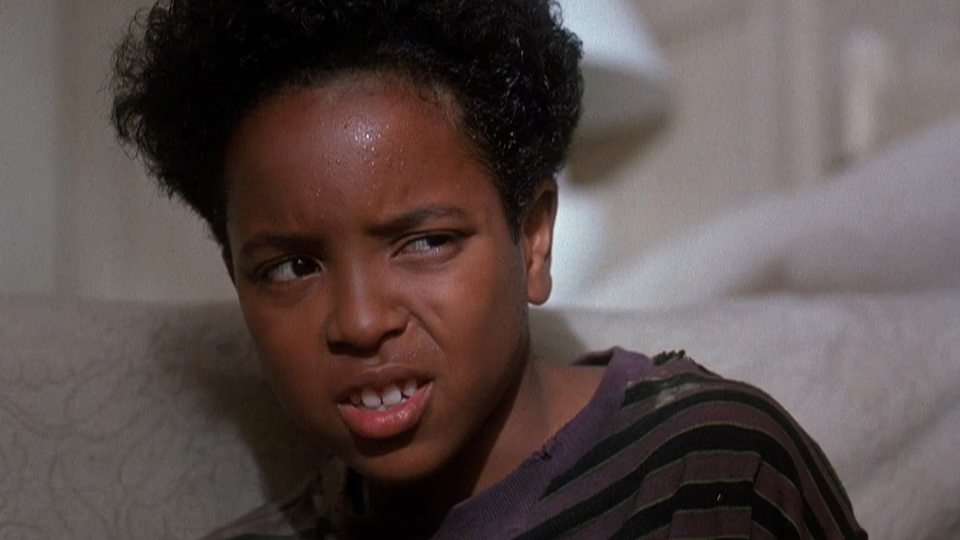The People Under the Stairs

Wes Craven finally figured it out.
After years of splicing comedy and kid-adventure into his horror pictures, he’s made a movie where the genres don’t just coexist—they dance. The People Under the Stairs is part Home Alone, part Evil Dead 2, part Grimm fairy tale, and somehow it works.
The setup is pure social commentary wrapped in grindhouse gift paper. Brandon Quintin Adams plays Fool, a young boy living in the L.A. ghetto with his dying mother. They’re being evicted. So he agrees to help rob their slumlord landlords. What he finds inside their suburban fortress is a house of horrors that would make the Brothers Grimm queasy.
Here’s what’s remarkable: Adams is good. Really good. Child actors usually telegraph every emotion. Not this kid. Watch his face when a fireplace poker snaps in his hands—it looks like a genuine accident, and his reaction is perfect. The kid has charisma to spare.
Craven’s technical chops are on full display. The house becomes a character itself, all secret passages and hidden rooms. When one of the villains realizes Fool’s outsmarted him, Craven drops in a sly Spielbergian dolly zoom. It’s the kind of flourish that elevates pulp into craft.
And about those villains: one chase scene features the landlord in full leather gimp gear, shotgun blazing, yelling maniacally as he blasts holes in his own walls. It’s terrifying. It’s hilarious. It’s both at once, and that’s the point. Craven watched Evil Dead 2 and realized he didn’t have to choose.
The film stumbles in the third act, losing its breakneck momentum just when it should be accelerating. There’s an interlude that deflates the tension, forcing Craven to re-inflate stakes that were already sky-high. It’s not fatal, just clumsy.
But here’s what matters: Craven earns his ending. By framing everything as a twisted fairy tale, the on-the-nose social commentary lands without preaching. Capitalism as cannibalism. The landlord class literally feeding on the poor. It’s not subtle, but fairy tales aren’t supposed to be.
Too bad the marketing sold it as a straight monster movie. The audience that needed to see this probably stayed home. The audience that showed up probably felt cheated.
Their loss. This is Wes Craven, fully formed.